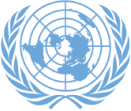The 44th Session of the Council of Foreign Ministers of the Islamic Cooperation was held from 10-11 July, 2017 in Abidjan, the Republic of Cote D’Iviore. The session was convened under the theme ‘Youth, Peace and Development in a World of Solidarity.
Guyana was represented by H.E Carl Greenidge, Vice President and Minister of Foreign Affairs of the Cooperative Republic of Guyana, along with Mr. Shiraz A. Mohamed, First Secretary at the Permanent Mission of Guyana to the United Nations.
The following is the statement delivered by the H.E Carl Greenidge, Vice President and Minister of Foreign Affairs of the Cooperative Republic of Guyana.
H.E Mr. Alassane Ouattara, President of the Republic of Cote d ‘Ivoire
H.E Mr. Marcel Amon Tanoh, Minister of Foreign Affairs of the Republic of Cote d ‘Ivoire
H.E Mr. Abdulaziz Komilov, Minister of Foreign Affairs of Uzbekistan
H.E Dr. Yousef A. Al-Othaimeen, Secretary General of the Organization of Islamic Conference
Heads of Government
Fellow Ministers of Foreign Affairs
Ambassadors, Members of Delegations
Distinguished Guests
Ladies and Gentlemen,
I am delighted to be able to join you in the beautiful city of Abidjan, Cote d’Iviore for this the 44th Session of the Council of Foreign Ministers of the OIC. On behalf of my Delegation I wish to first of all register our appreciation to the people and Government of Uzbekistan for successfully hosting the 43rd Session and making our stay there so pleasurable and informative. We look forward to a similarly successful meeting under the stewardship of Ivory Coast.
This gathering follows in the wake of the historic Arab Islamic American Summit held in Riyadh, Saudi Arabia this year. That summit could be said to have set the tone for a renewal of our mutual commitment to global security and to further strengthening the fraternal bonds between the East and the West. Our shared belief in tolerance and collaboration constitutes a foundation on which we can purse a brighter future for all. It is against this background that we commend the theme of this meeting entitled “Youth, Peace and Development in a World of Solidarity”.
The challenges, including globalization, facing the global community continue to jeopardize the achievement of peace, unity and stability. As a result, they undermine our singular and joint efforts to advance the development of our countries and to relieve the suffering of our peoples. Undoubtedly, persistent poverty is amongst the most urgent and insidious of these challenges. As leaders therefore, we need to recommit to devising urgent and more effective means of freeing humanity from poverty and hunger. In the process we should direct attention to dismantling the socio-economic structures that perpetuate this scourge. Undoubtedly, the 2030 Agenda for Sustainable Development offers a guiding framework within which we can pursue man/ human welfare as the focus of our national development efforts. This latter focus ought to inform our policies on issues such as migration, climate change, combating terrorism and intolerance and addressing inequalities.
The ongoing upsurge in migratory flows of people presents one such challenge to both peace and prosperity/poverty. In recent times these unprecedented migratory flows have not only posed additional problems for originating, transit and receiving states but have led to the re-emergence of prejudices, discrimination and violence against people who are already victims of tragedy and injustice. Ironically, the states which are, by virtue of their economic and technological capacity, in a good position to render assist to the unfortunate victims, are amongst those most unwilling to assist in meaningful ways. This attitude is doubly ironic when one recalls that many of these very states have in the past been the origin of the large flows that preceded the current phenomenon.
Today the policies of some of those states and their support for actions which give rise to flight of people is far from helpful or appropriate. As we meet here today, the Palestinian people have also yet to realize their fundamental right to self-determination while the situation of the Rohingya Muslims in Myanmar can best be categorized as one of the most neglected international causes. These are the realities which we face in our world today and to which a Nelson’s eye is too often turned in the international fora charged with managing such matters.
On the other hand, the receiving states in Africa and the South in general, although less well equipped to host migrants on the scale we have experienced, which have made the greatest effort to accommodate migrants. That is not to say that no problems of consequence result from the presence of such large and traumatic inflows. Receiving States are hard pressed to integrate large numbers of people into different social and cultural settings- an onerous and difficult to achieve task in the best of circumstances. Without adequate planning and worse yet, without adequate resources, the movements can be expected to compound social and economic inequality. In these circumstances cultural and racial prejudice has been rearing its ugly head.
Mr. Chairman when we reflect on our world today we cannot but worry about the future prospects for today’s young people especially pre-adolescents. In many cases the young are faced with more challenges – violence, domestic and gender-based, terrorism, unemployment, academic gaps, dysfunctional peer pressure and dysfunctional diversions including drug and people trafficking - than their forbears as a whole. These diversions in particular give rise to their own array of new problems including lack of belief in self and short-termism in outlook. In addition, there is the on-going failure by way of policy formulation where the specific needs and aspirations of the young are frequently overlooked. There also remain significant barriers to full participation by the young, in public life. The latter have adverse impacts on the economy, politics, peace and development at large. The question of how young people will be supported and engaged will significantly determine the prospects of sustainable development and the peaceful conditions of societies in the coming years.
For this reason, we at the IOC for example need to devote attention to jointly fashioning tools or policies to head of the challenges. One initiative which commends itself would be for us to explore and implement inclusive partnerships aimed at the inclusion of our youth. We need to develop joint platforms to identify, explore and share experiences in ways to increase inclusive representation of youth in decision-making at all levels. In addition, in partnership with young people we should develop mechanisms for the prevention and resolution of conflict. This will enhance the important role young women and men can play as positive role models in preventing and countering violent extremism.
This is not the place in which to fully expatiate such proposals but I should like to mention:
School-based service learning
Adoption of a process for the progressive involvement of youth in organization’s decision-making
Provide support for youth organization and activism
Given the importance of youths as a not fully exploited asset in development, we fail at our peril to make every effort to empower marginalized young people especially in troubled communities. In addition to the focus on developing responsible decision-making skills, we would be well-advised to invest in developing meaningful alternatives for young people by increasing focus on relevant education and training as well as on relevant infrastructure aimed at developing skills-based expertise among them.
We also need to make greater effort to focus on the role of young men and women in peacebuilding and countering violent extremism. At a time when an estimated 600 million young people live in fragile and conflict-affected settings, a concerted effort needs to be made to minimize the potential for radicalization and to remove the easy allure and seduction of violent extremism. Our states should invest more in youth-led peacebuilding and conflict-prevention interventions to build peaceful communities and underpin democratic, inclusive governance.
Today, it is obvious that acts of human solidarity and brotherhood are needed to support or underpin the pursuit of peace, sustainable development and human security. . It is important therefore for us to continue dialogue and negotiations to foster mutual understanding, enhance cooperation and consolidate partnerships for mind-set change between our regions. At the national level, we should therefore also place emphasis on intercultural and interreligious dialogue and cooperation to discourage negative stereotyping of people on the basis of religion, faith or race. We also call upon the international community to take concrete measures to foster an environment of respect for all religions
It is also imperative for our states to consciously and as a first resort to pursue dialogue and negotiations to alleviate the unresolved problems rather than to adopt confrontation or force to achieve goals. The former can enhance mutual understanding and cooperation. This is equally true at the regional level. We should pursue meaningful partnerships within our own regions. Guyana notes with concern the current embargo against Qatar, and echo the call for the OIC to continue to promote and maintain solidarity between and among Member States with a view to addressing in a cooperative spirit, the prevailing challenges which confront the organization in the 21st century.
I take this opportunity to reiterate the commitment of my Government and the people of Guyana to support to the best of our ability, all initiatives aiming at promoting moderation and tolerance among civilizations while at the same time empowering our youth to contribute to the sustainable development of our societies.
In closing Excellencies, I should like to join previous speakers in acknowledging the excellent arrangements and superb facilities placed at our disposal by the People and Government of Cote d‘Ivoire. These arrangements have contributed in no small measure to the comfortable atmosphere and surroundings which have helped us to work expeditiously and fruitfully.
Please accept Excellencies, my best wishes for the fruitful conclusion of our deliberations during the remainder of this meeting.
I thank you.


